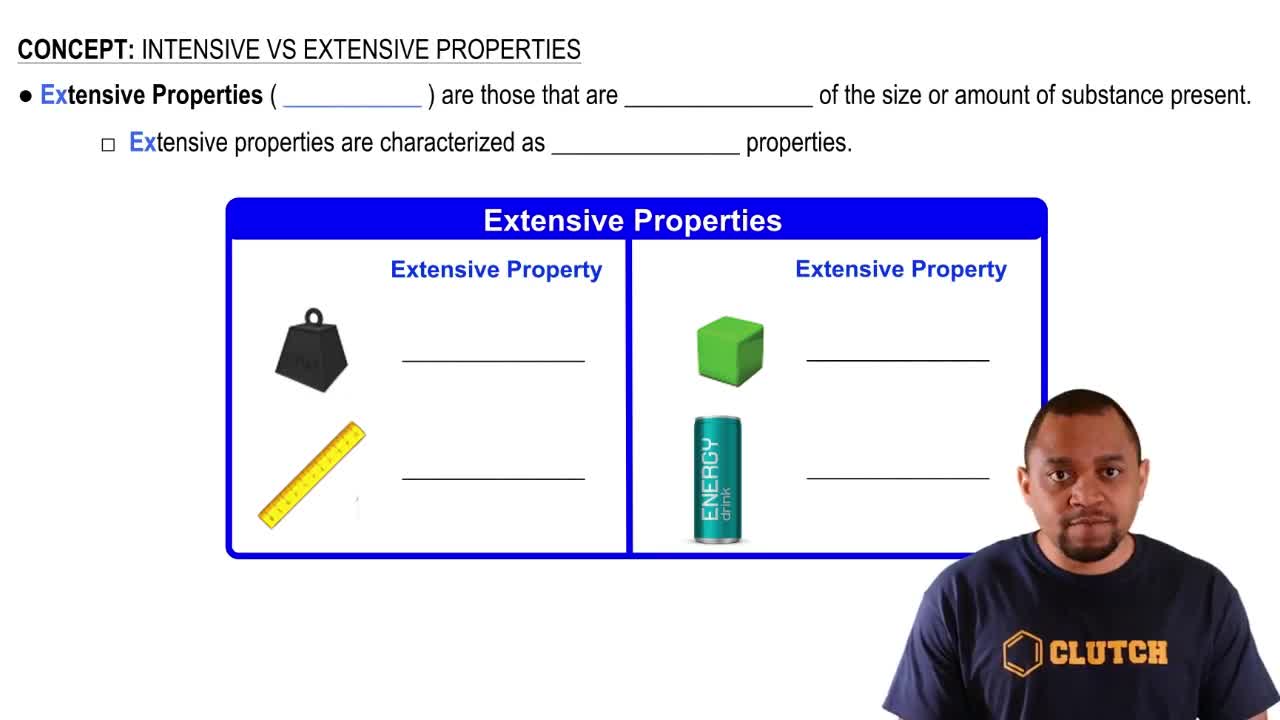Using the activity series (Table 4.5), write balanced chemical equations for the following reactions. If no reaction occurs, write NR. (e) hydrogen gas is bubbled through a solution of silver nitrate.
(a) Is the number of moles of ions present in a solution an intensive or an extensive property?

Verified Solution
Key Concepts
Intensive vs. Extensive Properties

Moles and Ions

Properties of Solutions

The metal cadmium tends to form Cd2+ ions. The following observations are made: (i) When a strip of zinc metal is placed in CdCl2(aq), cadmium metal is deposited on the strip. (ii) When a strip of cadmium metal is placed in Ni(NO3)(aq), nickel metal is deposited on the strip. (b) Which elements more closely define the position of cadmium in the activity series?
The following reactions (note that the arrows are pointing only one direction) can be used to prepare an activity series for the halogens: Br21aq2 + 2 NaI1aq2¡2 NaBr1aq2 + I21aq2 Cl21aq2 + 2 NaBr1aq2¡2 NaCl1aq2 + Br21aq2 (a) Which elemental halogen would you predict is the most stable, upon mixing with other halides?
(b) Can you identify which one between 0.10 mol ZnCl2 and 0.1M ZnCl2 contains more Zn2+ ion? Why?
You make 1.000 L of an aqueous solution that contains 35.0 g of sucrose (C12H22O11). (b) How many liters of water would you have to add to this solution to reduce the molarity you calculated in part (a) by a factor of two?
(c) How many milliliters of a 6.00 M NaOH solution are needed to provide 0.350 mol of NaOH?
